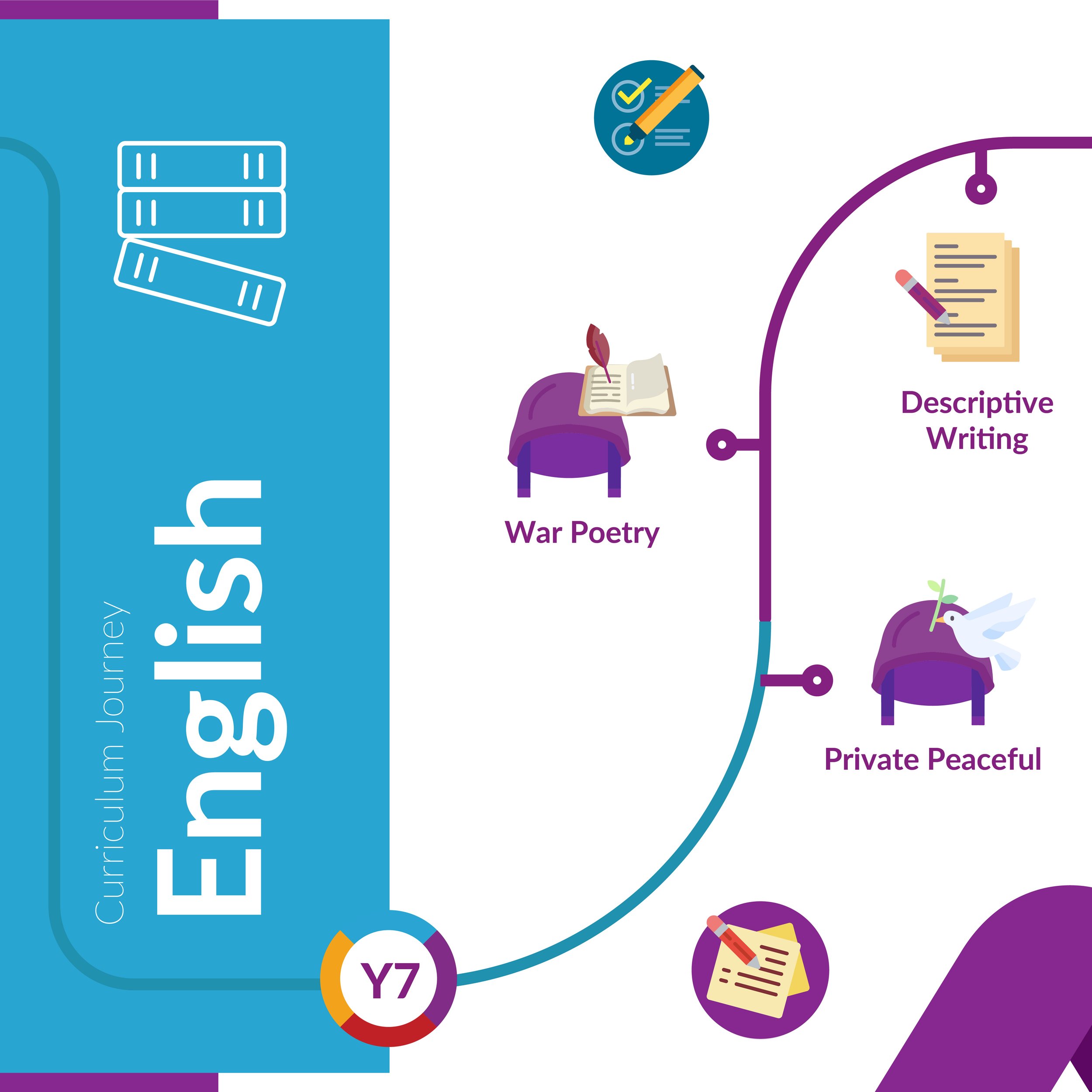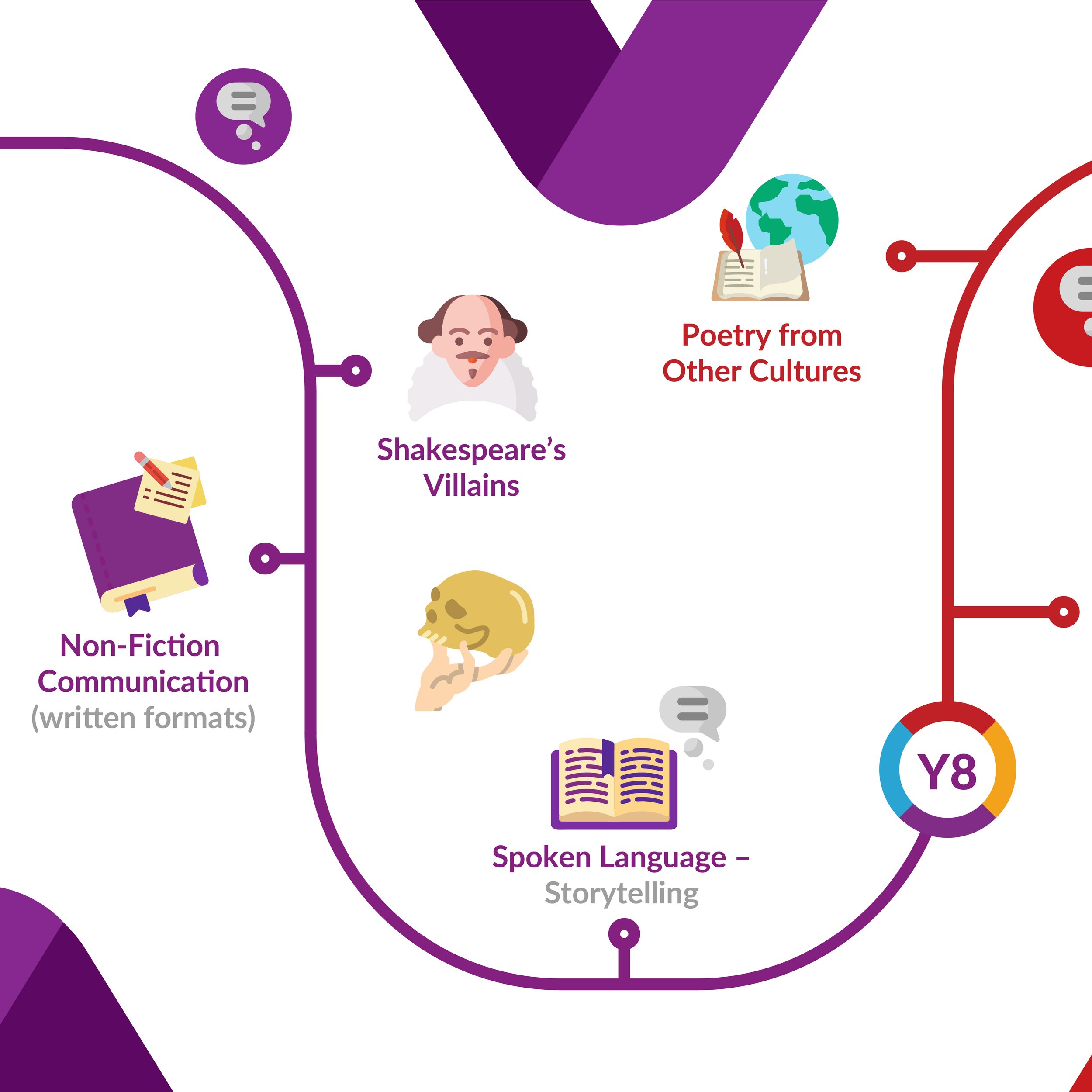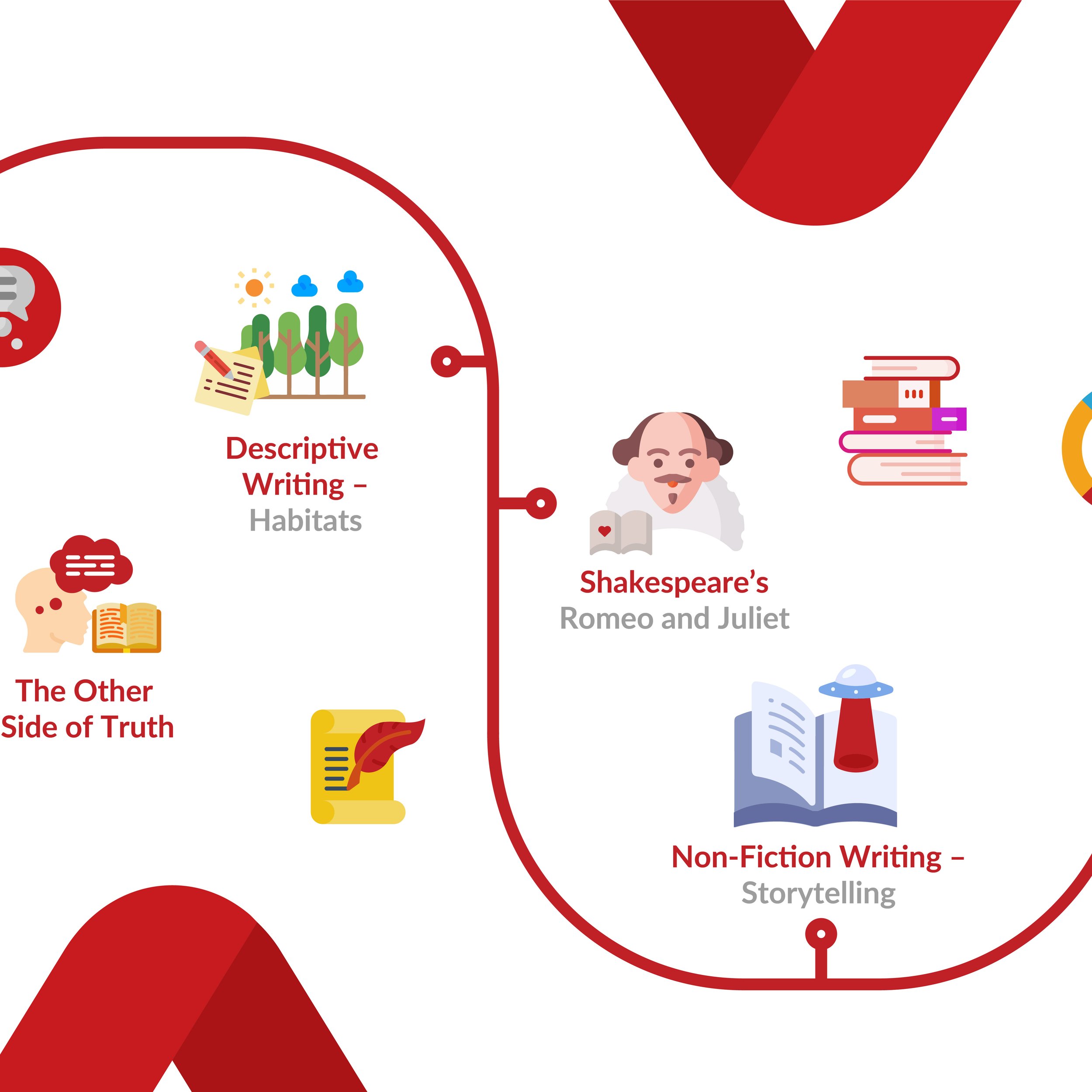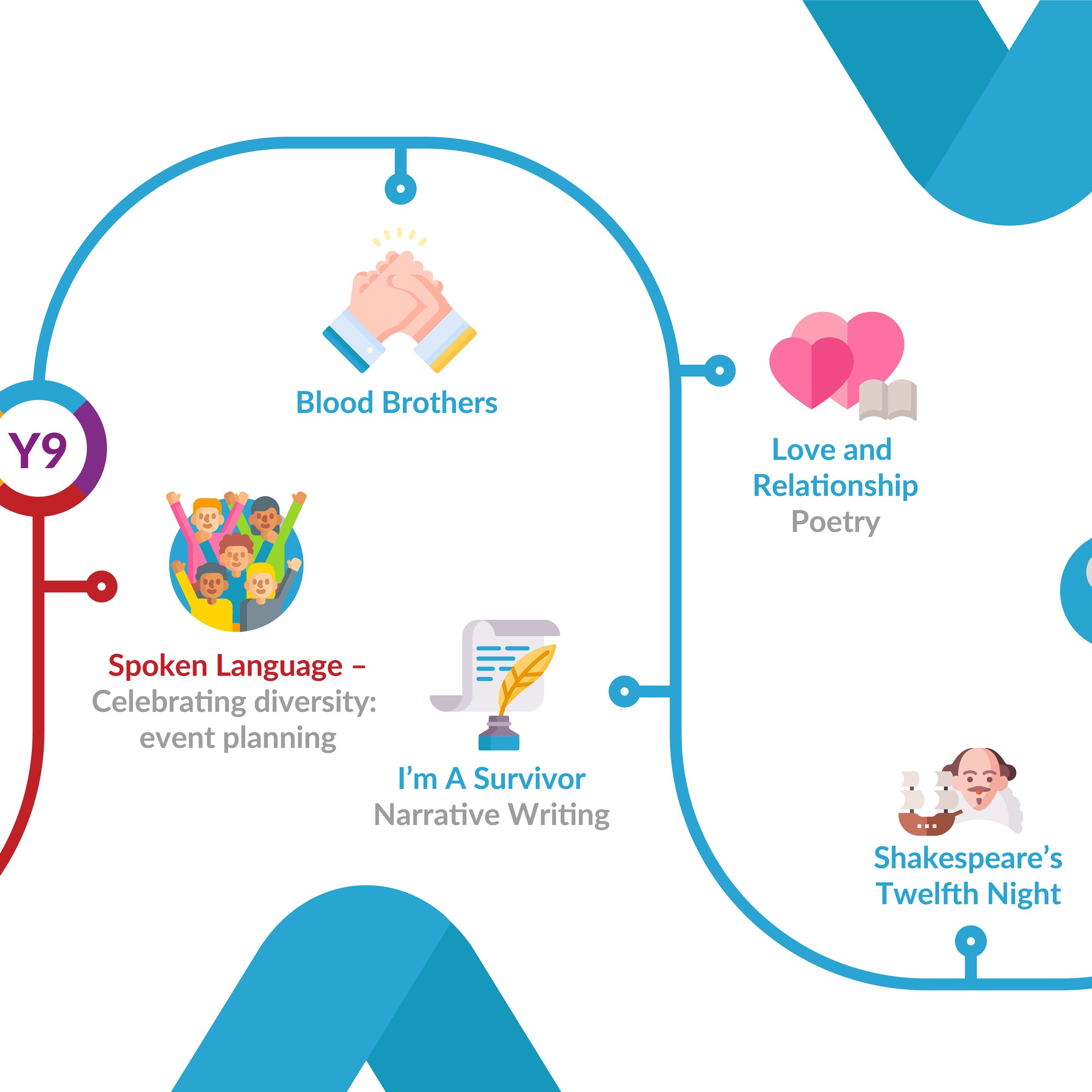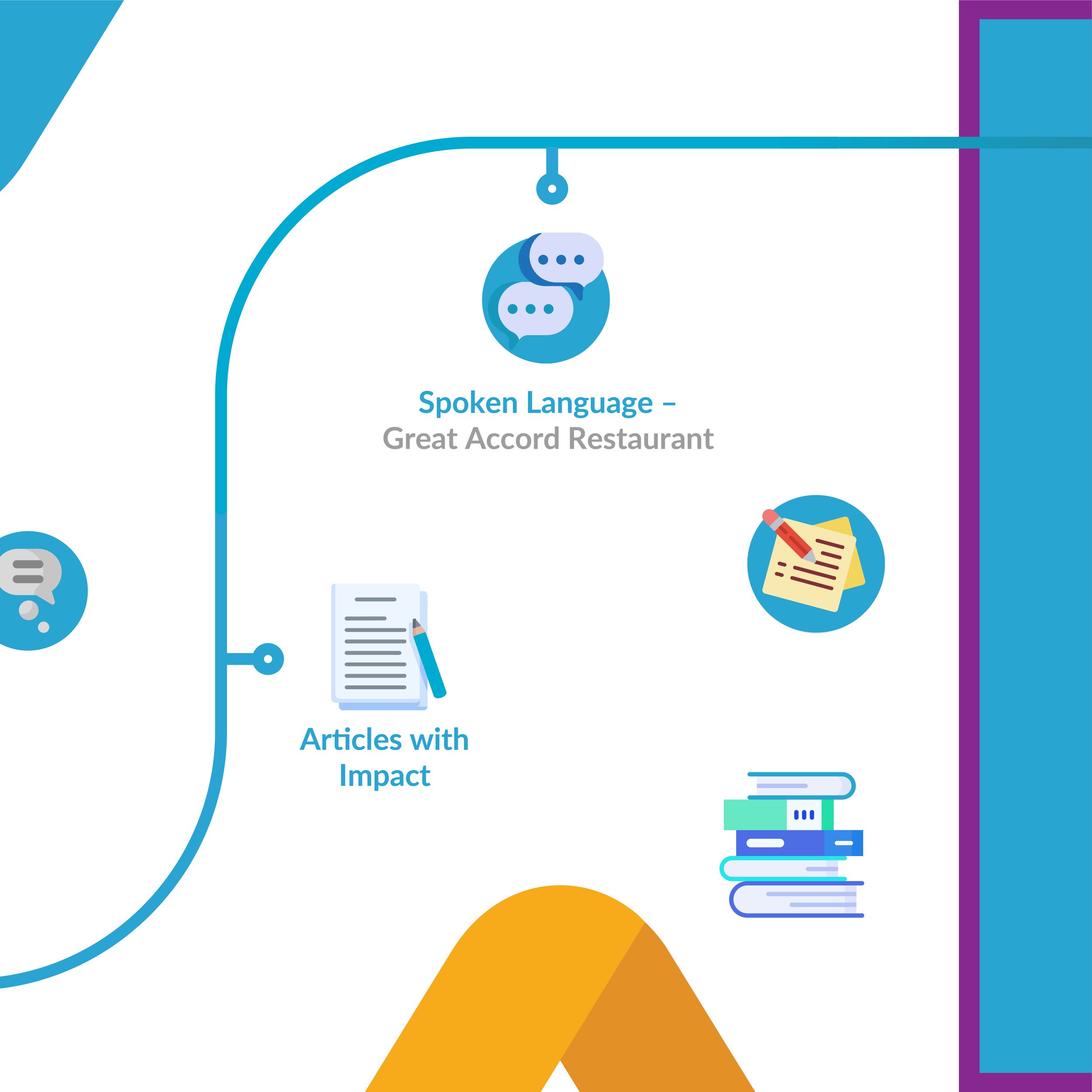
English
Year 8
Half Term 1
Novel Study: The Other Side of Truth
-
In this unit of work, pupils will be reading a novel that about two Nigerian political refugees set in 1995, whose father is journalist who is critical of his country’s ruler. After their mother is killed, the two children are sent to England by their father to save them from any future threats.
The themes explored by this book are:
Refugees.
Loss and displacement.
Freedom of speech vs Censorship.
Human rights.
Discrimination and prejudice.
Coming of age.
Through this scheme of work, pupils will be exploring a novel in-depth which will allow them to explore the language used by the writer, the structure of the novel and make any relevant contextual links between the novel and the life of a refugee.
-
The ideas pupils will understand and the words they will be able to use.
Pupils will be given a range of vocabulary to study which covers the themes mentioned above.
Key terms:
Grief, loss, refugee, freedom, discrimination, prejudice, equality, truthful, critical.Extended vocabulary:
trauma, censorship, displacement, suppression, assassination, asylum, tolerance.Words linked to analysis: Context, influence, metaphor, simile, imagery, foreshadowing, symbolism, connotations, effects, authorial intention.
-
Encourage your child to talk about the book with you and ask them questions about the characters and what they have been reading. Questions focusing on what they have been reading that week or how this novel by link to current event would be a really useful place to start.
Wider reading:
Author’s website about the novel.
Refugee Boy by Benjamin Zephaniah.
I Am Malala by Malala Yousafzai.
The Boy at the Back of the Class by Onjali Rauf.
Ensure that your child logs onto their class Teams page and accesses the lesson resources posted by their class teacher. All lessons will be posted there for pupils to access for their own learning or if they are absent.
-
BBC Bitesize:
Fiction Texts.
Reading Skills.
Half Term 2
Poetry: Exploring Diverse Cultures
-
Students will be introduced to a broader range of poetic content, exploring a range of writing forms, themes and skills.
They will have the opportunity to learn about various cultures and lifestyles through the work of poets from a variety of backgrounds.
This will add variety to the intellectual capital the students have already built so far. -
The ideas pupils will understand and the words they will be able to use.
Key terms linked to poetry: Metaphor, Simile, Personification, imagery, alliteration, rhyme, rhythm, verse, tone, dialect, perspective, symbolism, theme, context, analysis, interpretation, form, structure, stanza.
Key terms linked to themes: Identity, experiences, ethnicity, race, discrimination, culture, heritage, attitudes, diversity, British Values, tolerance, inequality, capitalism.
-
You can support your child by reading and discussing the experiences and viewpoints of the different poets they have explored.
Use the news and current affairs to discuss prevalent attitudes and policies to diverse races, ethnicities, faiths and beliefs.
Keep up to date with what your child has been learning through the class Teams channel and SharePoint where lessons and materials will be posted.
Encourage your child to learn about different countries, cultures and lifestyles through wider reading, programmes and documentaries such as National Geographic.
-
Websites:
Understanding Poetry
Benjamin ZephaniahAnalysis:
Blessing
Island Man
Half-Caste
Two Scavengers in a Truck
No Problem
What Were They LikeVideos:
Island Man
Half-Caste
Mixed Race Experience
No Problem
Vietnam
Poets’ Autobiographies:
My name is Book by John Agard The Life and Rhymes of Benjamin Zephaniah
Half Term 3
Descriptive Habitats and Interesting Landscapes
-
This unit builds on descriptive/ narrative writing skills taught in Year 7 allowing students to develop their creative curiosity by exploring ideas around “habitats”.
In doing so they will develop their ability to craft and control language for effect. As well as students being able to develop their vocabulary, they will also be able to explore the different ways to structure a description and recap descriptive writing skills.
Students will also recap how to use punctuation and sentence structure accurately and explore ways to use it for effect. This unit also links to a geography unit which has been taught in the previous half term to students with the hope that a cross link of vocabulary can be developed. -
The ideas pupils will understand and the words they will be able to use.
Key concepts:
What a habitat? What is climate change? What is the difference between a description and a narrative?Technical Vocabulary: Semicolon, colon, comma, subordinate clause, main clause, fragment sentence, metaphor, simile, semantic field, personification, onomatopoeia, extended metaphor, pathetic fallacy, habitat, environment, climate.
Ambitious Vocabulary:
Regions, rural, scenery, utopia, dystopia, hopeful, portent, harmless, heartening, fortunate, calmness, majestic, beautiful, mesmerising. -
Sensory experiences on trips out. Can you describe the setting you are in by describing the effect on the senses? What can you see? Smell? Hear? Feel? Taste?
Family or individual reading of dystopian texts.
Consider how the weather is an important part of the setting in anything you are watching/reading together.
Discussion on how characters in literature and television are developed through movement and speech.
Places to visit:
The Deep - Hull’s award-winning aquarium and take a journey through prehistoric seas, past tropical lagoons, into the vast open oceans.The North York Moors - a chance to see beautiful countryside and wildlife in their natural habitats.
-
David Attenborough narrates a history of our planet.
Second SeriesThe Hunger Games novel series by Suzanne Collins and film adaptations available on Netflix.
The Lost Continent by Bill Bryson.
Half Term 4
Shakespeare: Romeo and Juliet
-
Study the William Shakespeare play Romeo and Juliet
It is a play about love. However, it is a complex story that is not all about romance; there’s a good dose of duels, secret plots and tragic deaths too.
The teenaged children of two warring families, Romeo and Juliet meet at a party and fall in love. The play tells the story of their attempts to be together, but sadly all is destined to go wrong in the end.Explore the play of Romeo and Juliet including the analysis of key themes, ideas and language choices made by Shakespeare
-
The ideas pupils will understand and the words they will be able to use.
Words that are specific to plays: audience, aside, character, dramatic irony, playwright, stage directions, adaptation
Words specific to language methods:
metaphor, imagery, pun, simile, sonnet, oxymoron (opposite), dramatic ironyWords related to key themes: feud, tragedy, plot, scheme, love, fate, apothecary, duality (opposites), patriarchy, relatioships
Others:
connotations, implicit, explicit, inference, prologue -
Read the story of Romeo and Juliet so they already understand the plot.
Romeo and Juliet (A Shakespeare Story) by Andrew Matthews.
Romeo and Juliet (Real Reads).
Romeo and Juliet Usborne English Readers illustrated by Simona Bursi – (Includes link to free audio).
Watch animated versions of the play.
Take part in family discovery events.
There are live performances adapted for children, interactive workshops and family tours packed with behind-the-scenes secrets and costumes to try on you'll be spoilt for choice at the UK's leading Shakespearean theatres and venues.
The Royal Shakespeare Company in Stratford-upon-Avon offers family events, holiday activities, treasure trails, play carts and more.
Shakespeare's Globe Theatre in London brings Shakespeare to life for the whole family with live demonstrations, family events.
The Shakespeare Birthplace Trust runs family events and activities in all the historic houses it manages such as Shakespeare’s birthplace.
You could Immerse yourself in Tudor times and discover why William Shakespeare is one of the world's leading poets and playwrights. Loads of free Shakespeare games and activities are available online:
Shakespeare for Kids from the Folger Shakespeare Library.
Games from Shakespeare's Globe's Playground site.
CBBC's Shakespeare page.
Playing for Shakespeare is a free desktop computer game for PCs and Macs from the Shakespeare Birthplace Trust.
-
Half Term 5
Non-fiction Writing: Influential Speeches
-
In this unit of work, pupils will be reading a range of speeches that discuss current-world issues and then be given the opportunities to create their own.
The topics students will be covering are:
The Environment
Media and Body Image
Crime
Gender
Human and Animal Rights
Through this scheme of work, pupils will be exploring questions such as: what makes a speech effective? Why are we discussing this topic? How can I create an effective speech?
Through these lessons, pupils will gain a wider understanding of issues in the world as well as being able to develop and express their own opinions on the issues that are discussed in class.
-
The ideas pupils will understand and the words they will be able to use.
Key Terms:
Perspective, Counter-argument, debate, influential, inspirational, indifference, tolerance, climate change, environment, inequality, gender, violence, stereotypes.Terms to build an argument: Additionally, Moreover, Furthermore, Contrastingly, However, On the other hand, Likewise
-
Encourage your child to watch the news with you/read the daily newspapers. Read together and discuss your own opinions of the issues that have been written about. Questions you could ask:
What do you think about…….?
Why do you think the writer decided to write about this topic?
How does it make you feel?
What do you think is the most interest sentence? Why?
Do you agree with the writer? Why/Why not?
What do you think the other side to this viewpoint could be?
Do you think this article will make people change the way they think?
Ask your child about the topic they have been studying that week and ‘play devil’s advocate’ – could you encourage them to think about the topic in a different way? i.e. For the Environment, could you ask them to question if Greta Thunberg’s speech or David Attenborough’s ideas will change anything?
Ensure that your child logs onto their class Teams page and accesses the lesson resources posted by their class teacher. All lessons will be posted there for pupils to access for their own learning or if they are absent.
-
Half Term 6
Oracy: Celebrating Diversity
-
During this scheme of work, students will develop their oracy skills through creating and developing their own event centred around a celebration of their choice.
They will have the opportunity to learn integral, transferrable skills for adulthood like teamwork, presentation skills and articulation of speech.
By the end of the half term, they will present their event to the rest of the class in a professional presentation style encompassing the oracy skills they have learnt.
They will also have the opportunity to gain an understanding of marketing, financing and the event management world which will impact their cultural understanding of society. -
The ideas pupils will understand and the words they will be able to use.
Oracy, vision, marketing, advertisement, compromise, event manager, creative director, finance director, Lead researcher, cohesive, innovation, mission statement, target audience, promotion, communications, articulate, annunciate, fluency
-
You can support your child by discussing different types of celebrations, different cultures and what those celebrations might entail. You can also encourage your child to speak fluently and in full sentences.
Use the news and current affairs to engage with different cultural celebrations.
Support your child by asking them to practice presenting their event to you, ask them questions about the event and discuss where it could be developed. You can then encourage them to make eye-contact, speak clearly and fluently and have positive body language.
Keep up to date with what your child has been learning through the class Teams channel and SharePoint where lessons and materials will be posted.
-
Days of the Year - A website that allows students to explore different events and celebrations that happen around the world.
BBC Skillswise - A BBC website with tips on how to be a successful speaker and listener.
On YouTube, you could visit the TEDtalks channel which has an array of speeches covering many topics which could help inspire your child to speak clearly and with confidence.

